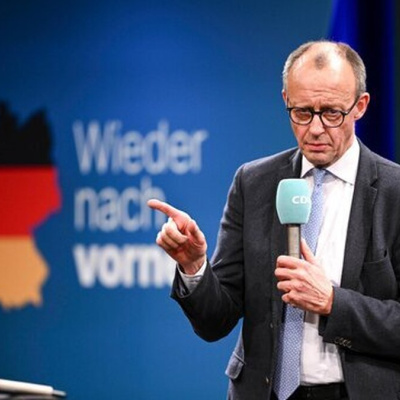
Title: Germany’s Diplomatic Tightrope: Balancing Historical Responsibility and Modern Realpolitik in the Middle East
A Legacy of Responsibility
January 2025 marks the 80th anniversary of the liberation of Auschwitz, a moment that once again compelled Germany’s president to declare: “Our responsibility toward the Jewish people is eternal.” A seemingly simple statement, yet laden with historical and political weight. This sentiment reflects the foundation of post-World War II German foreign policy: confronting the past to shape a different future.
But as another conflict flares in the Middle East, a pressing question resurfaces: To what extent does Germany’s foreign policy rely on collective memory—and how much is driven by tangible national interests?
From Merkel’s Era to Today’s Geopolitical Maze
In 2008, then-Chancellor Angela Merkel stood before Israel’s Knesset and asserted, “Israel’s security is part of our national interest.” At the time, this stance was widely accepted—both in Israel and globally. Merkel’s Germany symbolized moral leadership in a technocratic Europe.
Fifteen years later, Chancellor Christian Mertes inherits a fractured geopolitical landscape: divided media, war-weary publics, and escalating tensions. His challenge? Striking a balance between ethical imperatives and Realpolitik. But is such equilibrium achievable?
Crisis Diplomacy or Strategic Policy?
Since the outbreak of war in Gaza, Germany has faced parallel crises: student protests, party divisions, pressure from Washington, and heightened expectations from Tel Aviv. Berlin’s responses have been reactive—condemning violence, advocating for a two-state solution, and expressing concern for humanitarian suffering. Yet critics question whether these are coherent policies or mere stopgap measures.
The tension is palpable. While Germany reaffirms Israel’s right to self-defense, its domestic discourse grapples with the humanitarian toll in Gaza. Recent campus protests—where students demanding a ceasefire clashed with police—highlight this dilemma: How does Germany reconcile its commitment to human rights with its historical obligations?
Germany, Iran, and the Three-Way Equation
Germany’s foreign policy isn’t solely defined by its stance on Israel. Its approach to Iran is equally pivotal. For years, Berlin has oscillated between Israel’s security concerns and the necessity of dialogue with Tehran. Under Merkel, diplomacy occasionally tilted toward engagement. Today, however, cautious confrontation appears to dominate.
Trade with Iran has plummeted to historic lows, and diplomatic friction persists. Yet Germany fears that isolating Iran could destabilize the region further, triggering new migration waves. This paradox leaves Berlin at an impasse: unable to fully align with Iran, yet unwilling to marginalize it entirely.
Retreat or Reengagement? Germany’s Middle East Dilemma
For decades, Germany pursued “active restraint” in the Middle East—minimal intervention, humanitarian aid, and mediation. But with Saudi Arabia and the UAE pivoting toward China and Russia, Berlin’s influence wanes. The critical question now: Should Germany assert a stronger role, even at the cost of moral neutrality, or cede ground to other powers?
Conclusion: Diplomacy on a Knife’s Edge
Germany stands at a crossroads. Repeating mantras like “We bear responsibility” or “Israel’s security is our priority” no longer suffices in a rapidly shifting world. Today’s diplomacy demands precision, transparency, and nuance.
To remain a credible mediator, Chancellor Mertes must navigate beyond historical memory—without forgetting it. In an era of unprecedented change, Germany must redefine its global role—one anchored not in the burdens of the past, but in legitimate interests, humanitarian principles, and the courage to make decisive choices.


